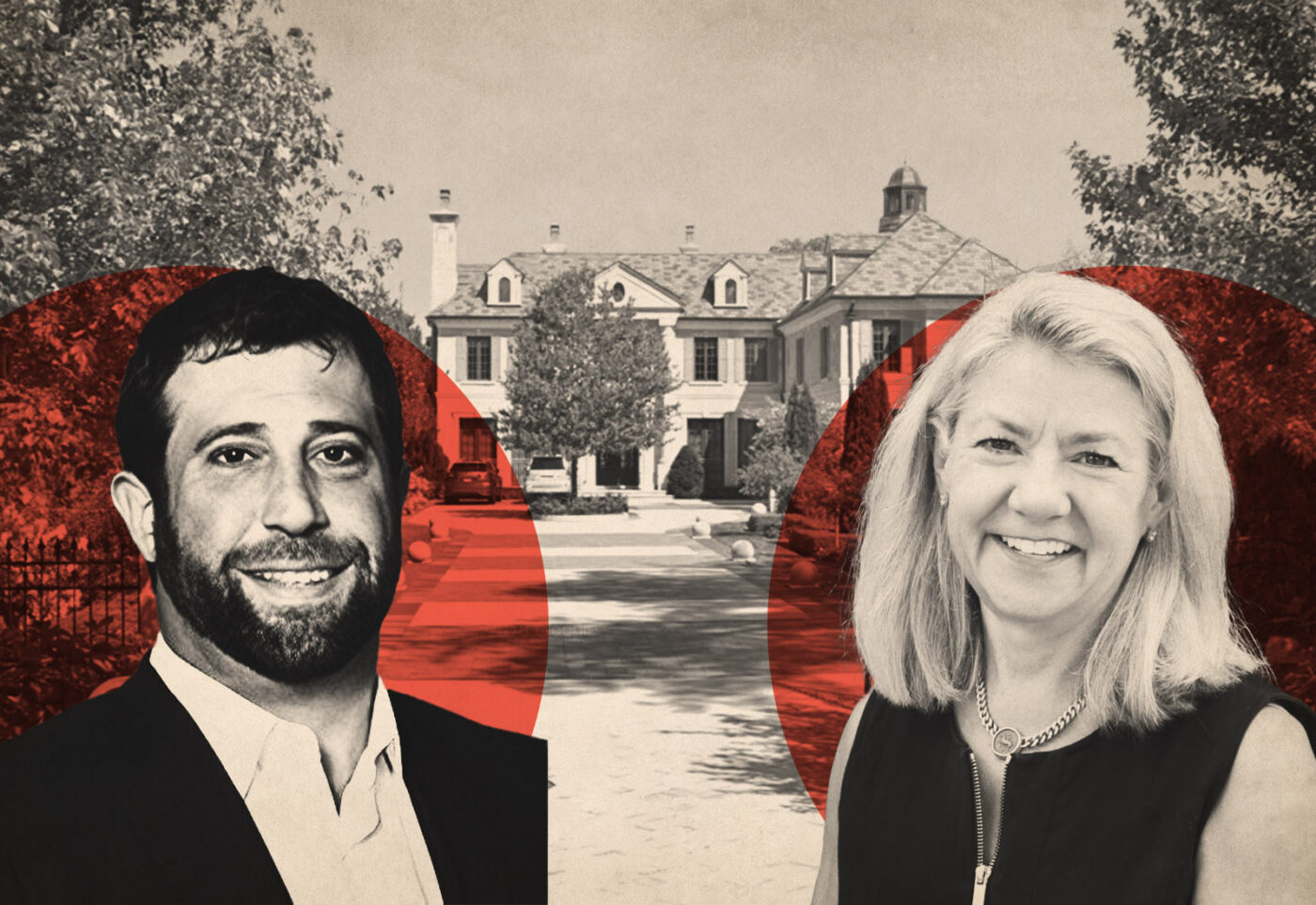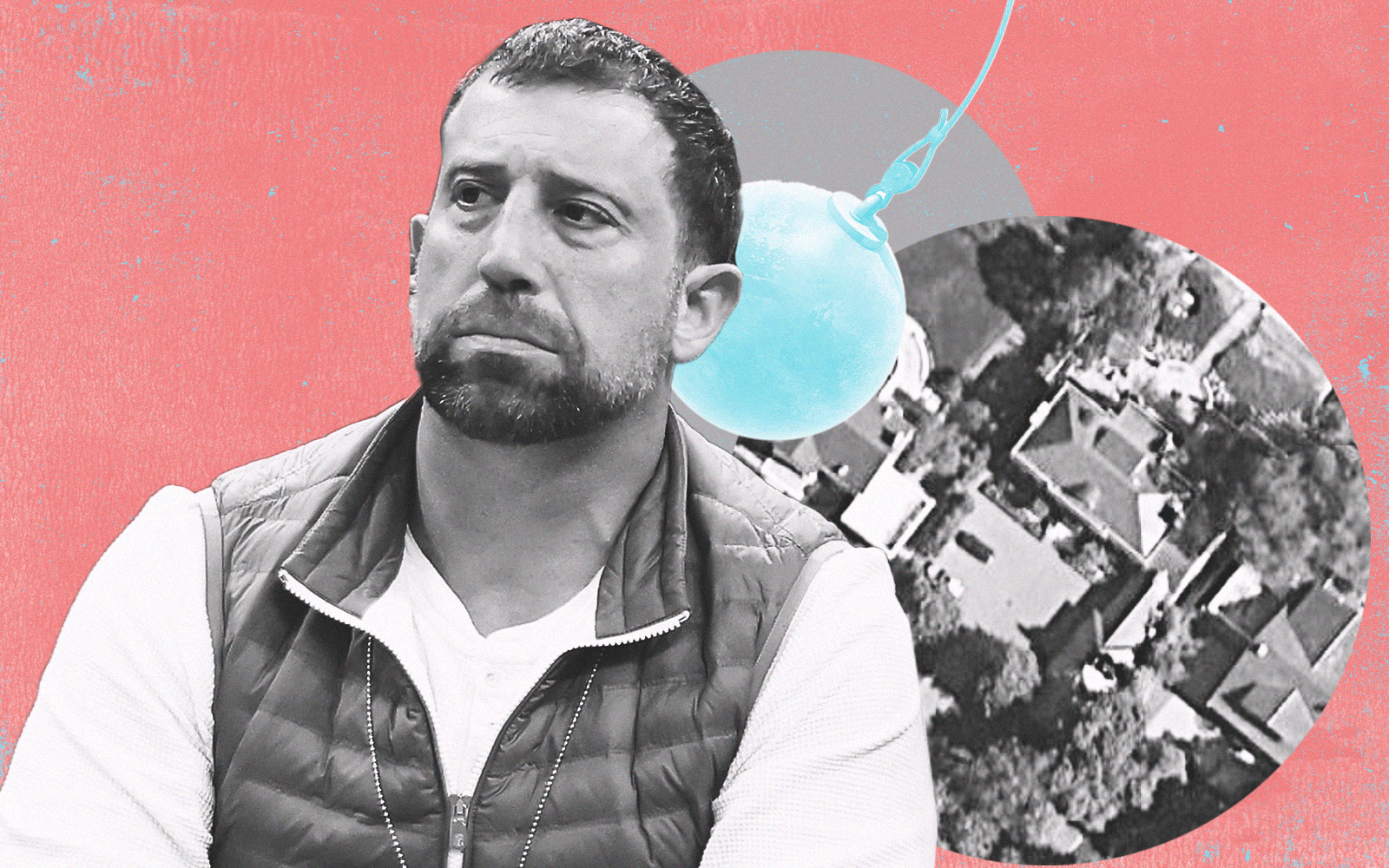 Billionaire Justin Ishbia begins demolition for epic Winnetka estate
Billionaire Justin Ishbia begins demolition for epic Winnetka estate
Trending
Winnetka walkout: Ishbia land swap sparks park board protest
Brewing squabble between park board and village stems from billionaire’s planned $44M estate

A proposal by Winnetka officials that could interfere with a lakefront land swap in the works between billionaire Justin Ishbia and the local park district caused a kerfuffle at a community meeting last week.
Winnetka Park District commissioners considered formally opposing an ordinance the village board is considering that, if passed, would more more heavily regulate lakefront land. Two commissioners left a public meeting last week, leaving the park board without a quorum and delaying a vote on whether to take a stand against the village proposal, The Record North Shore reported.
Parks Commissioners Cynthia Rapp and Colleen Root exited the session while two members of the seven-person body were already absent, preventing a formal protest from occurring, as a majority of a public body must be present under the Open Meetings Act to take official action, under Illinois law.
The quarrel stemmed from Ishbia’s planned $44 million estate at 195 through 209 Sheridan Road, where the Shore Capital Partners founder and Phoenix Suns minority owner is demolishing three smaller mansions to make way for a 68,300-square-foot spread. The Ishbia family also owns another property at 261 Sheridan that’s the subject of a controversial land-swap proposal with the park district.
Ishbia’s frenzied buying and razing activity in the North Shore suburb prompted the village trustees to discuss whether to take more control of lakefront properties through local rulemaking. He spent more than $30 million on the three homes torn down to make way for the construction project currently permitted by the village; the debate over the regulations the village is considering now could impact the fourth parcel he bought for $6.2 million at 261 Sheridan, a private parcel which sits between what are now public parklands.
The village is set to consider new laws that could impact the development potential of lakefront land, by creating an overlay zone that could restrict how quickly and intensely construction could occur on property that recently came into private hands from a public agency, such as the park district.
Park Board President Christina Codo believes the agenda item was a shot at the park district.
“I would argue that this is very pointed and very discriminatory (against the park district),” she said during the meeting. “I feel like it is targeted toward us. I feel like it constrains our activities and feel like it’s hasty and we haven’t had enough time to judge (the village proposals).”
The proposal would put a pause on construction projects that impact steep slopes along the lake, and, while it would not outright prevent land swaps such as Ishbia’s or proposed future deals, could also limit what could be built on public land sold to a private entity, according to the village’s community development director David Schoon.
One of the village’s ordinances would create a Lakefront Preservation Overlay District, covering some park district land, and another would put a nine-month ban on construction within a “steep-slope zone along the Lake Michigan bluffs.” The ordinance is set to be considered by the village board for adoption at a July 18 meeting, Schoon said.
Debate at the meeting looks likely. The village’s proposed regulations are “unusual and inconsistent with Illinois law,” David Simon, an attorney representing the park board, said, according to the news outlet.
Rapp, of the park district, said the protest creates tension between two municipal bodies that “need to work and collaborate on things on a regular basis.” Codo was in favor of making a formal protest.
If the village proposals are passed, the park board could pursue litigation or other measures to try and stop the increased regulation.
— Quinn Donoghue
Read more
 Billionaire Justin Ishbia begins demolition for epic Winnetka estate
Billionaire Justin Ishbia begins demolition for epic Winnetka estate
 Huge new Ishbia estate to cost $44M
Huge new Ishbia estate to cost $44M
 Ishbia determined to complete lakefront assemblage in face of new obstacles
Ishbia determined to complete lakefront assemblage in face of new obstacles




